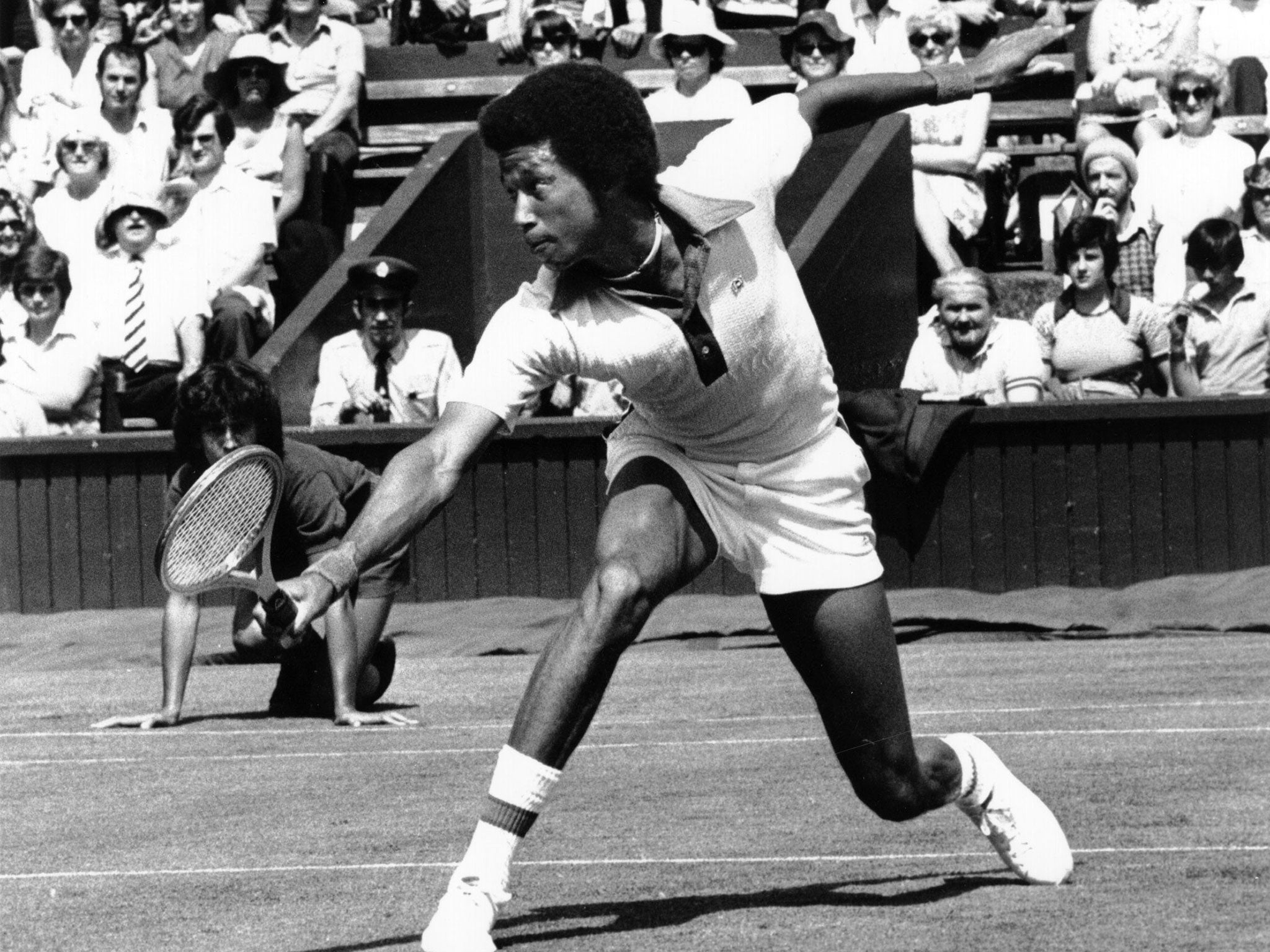View from the Sofa: Memory of Arthur Ashe cuts through the ghastly whimsy our tennis gets served up with
Arthur Ashe: More than a Champion BBC 2

When Marcos Baghdatis read the local weather report on regional television in the middle of last week, the forecast did not look too good with regards to a wackiness-free summer of tennis.
There the Cypriot player was on East Midlands Today, telling viewers that “it is gonna be raining tennis balls” in Nottingham, which cued sycophantic laughter from the studio, while viewers held their heads in their hands, no doubt screaming the question: Why, why, why is tennis so infected with whimsical wackiness, that twee “jolly good fun” attitude usually reserved for ardent royalists and bunting-obsessed cake-bakers?
Is Sir Cliff Richard to blame? The singer once sang live on air to keep spirits up during a rain delay (memorably dubbed Sir-Cliffitation by the radio DJ and comedian Christian O’Connell) – but that was a whole 19 years ago. Or perhaps it is the fault of presenter Sue “Chummy is my middle name” Barker. Maybe it’s Andrew Castle, the commentator with an uncanny ability to describe exactly what is in front of our eyes at the exact time we are seeing it. It could be the entire BBC cast of presenters, although the presence of the plain-talking and frequently sarcastic Andy Roddick in the commentary team this year will redress the balance somewhat.
It could be the misguided notion that sports fans like their tennis served up (sorry) in this fashion. Someone needs to tell the honchos that some of us don’t.
Thankfully, someone at the Beeb realises that we need a little substance with our tennis fluff and commissioned the excellent documentary on Arthur Ashe broadcast on Friday night.
Ashe, the 1975 Wimbledon champion, we learnt was a quiet man who became an inspiring figure for those campaigning for equal rights despite distancing himself from the more outspoken crusaders of the time, such as Muhammad Ali or the Black Power saluting runners Tommie Smith and John Carlos of the 1968 Olympics. In fact, he was singled out as an “Uncle Tom”, partly for his opinion that it was partly down to laziness that African Americans were downtrodden.
But the early image of him was wrong. It wasn’t that he didn’t care; he was just reluctant to shout about it. As his friend and agent, Donald Dell, recounted him telling Jesse Jackson: “I use my racket to do my talking.”
Serena Williams, one of many stellar interviewees, along with John McEnroe, Billie Jean King and Martina Navratilova, summed up Ashe’s influence by saying: “If it wasn’t for him, I wouldn’t be playing.”
His interview after beating Jimmy Connors in the Wimbledon final was particularly illuminating. “Having grown up with segregation, I know what it is like to be stepped on,” he said. “And I also know what it is like to have a black hero.”
Even after he contracted Aids, he told King that being a black man was still the toughest thing he had to deal with.
Connors, who was an adversary of Ashe’s on and off the court, was a notable omission from the documentary, to its detriment. Even Ilie Nastase, who once goaded Ashe to the extent that he defaulted a match, was featured. “Actually, we are good friends,” he said.
Apart from the slight lack of balance (surely someone in the world had a less than exalted opinion of him), it was a welcome reminder that tennis – and sport in general – is not all fluff, fun and frippery.
Join our commenting forum
Join thought-provoking conversations, follow other Independent readers and see their replies
Comments
Bookmark popover
Removed from bookmarks